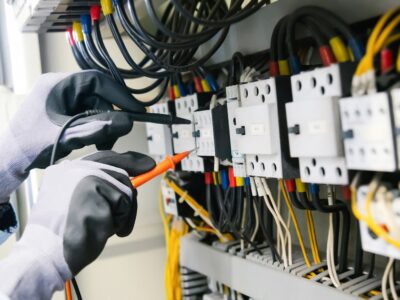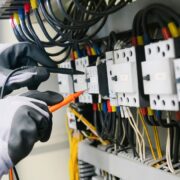
As summer heats up, most homeowners are relying on their ACs. While regular maintenance can help keep your system running smoothly, there are often subtle signs that your AC may need repairs.
If you notice a musty smell, this is a sign that there is a mold problem in your system or ductwork. This is a health hazard that needs to be repaired immediately.
1. Unusual Noise
You may hear a hissing noise when your AC is working, which is indicative of a refrigerant leak. This type of leak is dangerous and requires immediate AC repair New Braunfels.
Warm air coming out of your vents is another sign that something is wrong with your HVAC system. This could be caused by a number of things, including a low level of refrigerant or a thermostat switch that isn’t functioning correctly.
Unusual odors are also signs that your air conditioner needs repairs. If you notice a musty smell, it may indicate that there is mold in your system. This is dangerous because mold spores are blown into your home when the HVAC system runs. This can make people sick, especially children and the elderly.
2. Unusual Smells
Odors that are coming from your AC system can be an indicator of a number of things. If you smell a pungent, rotting smell it could mean there is a dead animal in your unit or ductwork. A musty smell indicates mold, which is something that a professional needs to diagnose and remove ASAP.
A squealing, grinding or scraping noise is not normal and if you hear it while your AC is running, it means that there is a belt moving out of place. This is an urgent issue that requires a call to your local AC experts because loose pieces can cause expensive damage.
Open chemical containers stored near your AC unit can also leak fumes, which are then forced through the airflow in your home. Please make sure that you store all chemicals in sealed, safe containers away from your AC unit.
3. Low Air Flow
If you turn on your AC and feel cool air blowing, but it’s weak and barely making it to the vents in your home, this is indicative of a need for an AC repair. It could be a sign that your compressor is failing, but it could also be a sign of clogged ducts that need to be cleaned.
Another symptom of AC problems is an energy bill that spikes even though you’re not using the system more than usual. This is often an indicator of a problem with the thermostat, which needs to be looked at by a trained HVAC technician. These are all signs that it’s time to call in an HVAC specialist to fix your AC. Keeping an eye on your AC will prevent bigger problems from developing later.
4. High Utility Bills
Even if you get your air conditioner serviced on a regular basis, a breakdown can happen at any time. When this happens, your aging AC may need to be replaced with a newer unit.
The first indication that this is the case is a high energy bill. A power bill that rises dramatically without any extra usage is usually an indicator of a failing AC unit. This can be due to a number of factors such as leaks in the ductwork, a broken thermostat switch, or just an advanced age of the unit.
You should also pay attention to unusual smells. Any kind of burning, foul, or musty smells indicate a serious issue that needs to be addressed. The most common of these is a refrigerant leak which is very dangerous.
5. Water Leaks
Unfortunately for many homeowners, even the best AC units don’t last forever. While regular AC tune-ups can help extend their lifespan, they will eventually need to be replaced. Being able to recognize the signs of a dying unit early can save you from bigger problems down the road.
Unusual sounds like banging, squealing or chattering are not normal for an AC system. They can indicate loose parts that may cause further damage if left alone.
Odors that smell musty or smokey are also indicators of a problem. These odors can mean a variety of things including burnt out wires, mold contamination and more. It’s essential to have these odors investigated as soon as possible to avoid making your family sick. Water leaks are another thing to look out for. These could be signs of a refrigerant leak, which can be very dangerous.











